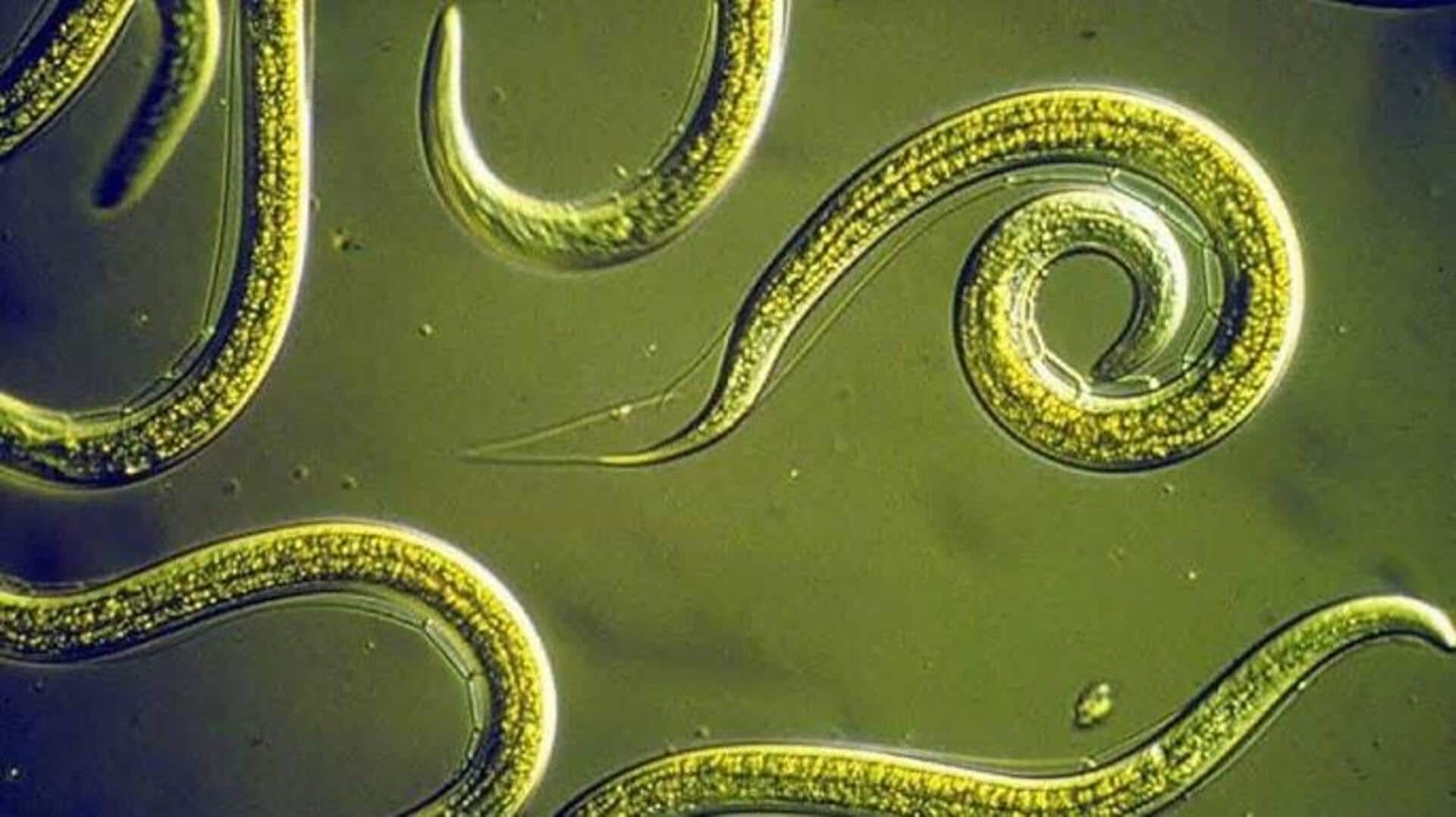
Roundworms use smell to detect harmful bacteria, study reveals
What's the story
In a new study, researchers at the University of California have found that roundworms can smell harmful bacteria.
The olfactory neurons of these nematodes serve as an early warning system against potentially dangerous food.
When the worm smells harmful bacteria, it preps its gut for a potential infection by triggering a process in its intestinal cells that destroys mitochondria.
Defense strategy
Unique defense mechanism against harmful bacteria
The destruction of mitochondria, energy-producing organelles containing iron, is an important part of the roundworm's defense strategy. This is because many invading bacteria need iron to survive.
The researchers believe this preemptive response has evolved to protect nematodes from deadly pathogens.
As roundworms need to consume bacteria for survival, it's essential for them to differentiate between nutritious and harmful ones.
Danger detection
Danger is detected through bacterial metabolites
The roundworm detects threats through volatile metabolites, compounds released by bacteria into the environment.
One such bacterium, Pseudomonas aeruginosa, releases a metabolite called acetylpropionyl.
In lab tests, roundworms were seen detecting acetylpropionyl through their olfactory nervous system, and when they did, they triggered a mitochondrial stress response in their intestinal cells.
Neuronal role
Olfactory neurons' role in roundworms' immune response
The study discovered that the olfactory neurons of roundworms stay alert even in the absence of an odorant, but turn inactive when they detect an odorant.
When the researchers artificially silenced these neurons, the worms' cells continued their preemptive immune response, regardless of whether an odorant was present or not.
Neuroscientist Julian Dishart explained, "The novelty is that C. elegans is getting ready for a pathogen before it even meets the pathogen."
Broader implications
Potential for similar mechanisms in other animals
Dishart also hinted that other immune responses could be activated by smelling bacterial odors, and the idea of similar mechanisms being present in other animals is still uncharted territory.
He suggested that since olfaction is conserved across animal lineages, "It's totally possible that smell is doing something similar in mammals as it's doing in C. elegans."
Scenario
Can humans pick up on it?
Future research hopes to see if smells can prime the guts of other animals similarly.
Neuroscientist Andrew Dillin wonders, "Can pathogens emit a smell that we detect, helping us fight infections?"
"We've been testing this in mice. If we discover that humans can smell pathogens and react to protect themselves, it's possible to imagine a future where we develop something like a pathogen-repelling perfume."